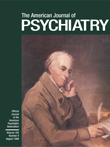Dr. Platt has written a comprehensive review of the English-language literature on cocaine abuse. He is Professor of Psychiatry and Director of the Division of Addiction Research and Treatment, Allegheny University of Health Sciences, Medical College of Pennsylvania and Hahnemann School of Medicine, Philadelphia. He is also Director of the Institute for Addictive Research at Allegheny University of the Health Sciences. He has previously published three volumes on heroin addiction.
His scholarship is impressive; he has reviewed more than 1,000 articles covering cocaine's history, use, pharmacology, behavioral effects, psychopathological and medical aspects, and treatment of abuse. At the end of each of his 11 chapters, he states his conclusions about the information in the foregoing pages. I found this helpful in making the material relatively easy to read and retain. Dr. Platt is an able writer and a talented summarizer; each paragraph in the conclusions sections starts with an italicized sentence that serves as a brief abstract of what follows. The bulk of the book's content is in the form of densely packed data with the citations in parentheses. Dr. Platt stresses in his preface that this book would be most useful as a reference to the wealth of research and clinical articles that he cites.
Dr. Platt thoroughly reports and discusses what has been written about the psychosocial treatment of cocaine abuse. He has little good news for us, however. He finds that there is some promise in contingency management, a form of behavior therapy using community resources such as vocational, educational, financial, and legal counseling together with direct financial rewards for abstinence (p. 212). This approach was found to be more effective than a 12-step program in initiating abstinence and preventing relapse. The published studies of contingency management contrasted with a 12-step program have had follow-ups as long as 24 weeks. Long-term outcome studies had not been reported when this book was prepared (p. 333). Dupont (
1) strongly advocated lifelong membership in a 12-step fellowship as the sine qua non of addiction treatment. The many forms of nonpharmacological treatment that are reviewed in this publication attempt to reach the cocaine addicts who will not or cannot make use of Narcotics Anonymous (NA) or Alcoholics Anonymous (AA). In my experience, involvement in an abstinence-based, sponsored fellowship such as AA and NA is the best possible outcome of psychotherapy with an addict. In APA's practice guideline for the treatment of patients with substance use disorders, published in 1995 (
2), self-help groups for substance abuse disorders are referred to as adjunctive and helpful for many patients. The authors of the practice guideline noted that 12-step groups may not be right for patients who need to take psychoactive drugs for a comorbid condition, such as depression, if their use of prescribed medications is considered a form of substance abuse
(2, p. 20).
Pharmacological treatment has not been shown to be effective in itself, but medications that antagonize cocaine by blocking euphoria reduce craving and thus can be valuable when used with nonpharmacological interventions. Many workers have tried antidepressant, stimulant, antianxiety, dopaminergic, and neuroleptic agents without conspicuous success in reducing craving and promoting abstinence. One medication, however, flupenthixol decanoate, is, in Dr. Platt's words, “possibly the first pharmacological treatment to have demonstrated effectiveness in the treatment of cocaine abuse” (p. 305). Flupenthixol is a xanthene that can be administered intramuscularly at 2–4-week intervals. It blocks dopamine binding at receptors and appears to reduce craving significantly.

